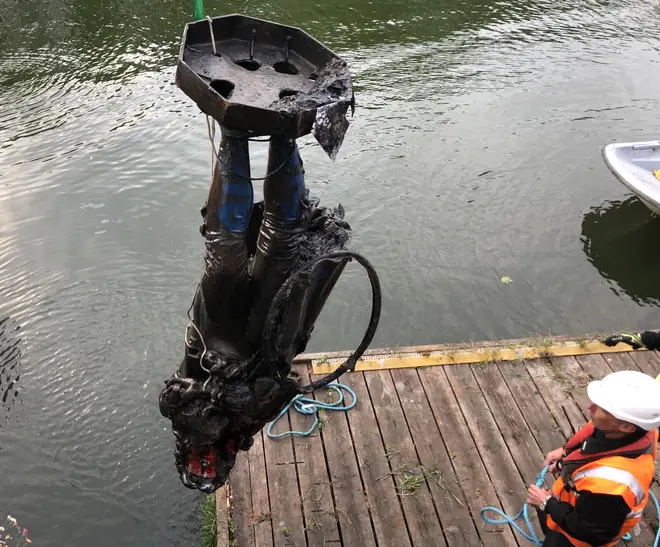
Ben Kentish 10pm - 1am
11 June 2020, 06:56

Statue of Edward Colston removed from water in Bristol
The statue of Edward Colston, which was torn down during anti-racism protests in Bristol and dumped in the city’s harbourside on Sunday, has been removed from the water by the City Council this morning.
On Thursday a spokesperson for Bristol City Council said the statue would be " taken to a secure location before later forming part of our museums collection."
They said the statue needed to be removed from the water as the city runs a "working harbour."
The statue of slave trader Edward Colston was toppled from its plinth in Bristol on Sunday, authorities across the country have faced calls to remove other tributes to controversial figures in the wake of the action.
On Wednesday, Bristol's mayor Marvin Rees announced that a new research commission would provide "more accuracy" to the city's history, including the impact of "wars, protests, slavery and freedom".

It comes after Bournemouth, Christchurch and Poole Council said it planned to temporarily remove a statue of Scouts founder Robert Baden-Powell from Poole Quay on Thursday over concerns it may be targeted by protesters.
The council said it wanted to "minimise the risk of any public disorder or anti-social behaviour that could arise were the statue to remain in situ" while views on Lord Baden-Powell are shared.

What will happen to Bristol's Edward Colston statue?
Speaking on ITV's Peston on Wednesday, shadow foreign secretary Lisa Nandy said people decided to take action over the memorial because they felt their voices on racial issues were not being heard.
She said: "Why was that statue removed in the way that it was removed?
"Because for 20 years, protesters and campaigners had used every democratic lever at their disposal, petitions, meetings, protests, trying to get elected politicians to act, and they couldn't reach a consensus and they couldn't get anything done.
"Now this is reflective of what has happened to people of colour in this country and across the world for a very long time. We've had seven reviews into racial discrimination in this country in the last three years alone, and very few of those recommendations have been acted on.
"That is why people are so frustrated, and that's the question we should be asking ourselves, is why is it so difficult for so many people to actually be heard and to pull the democratic leaders to get the democratic change that they need?"